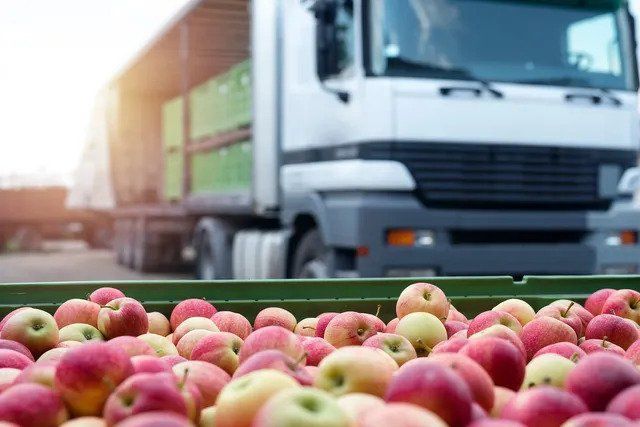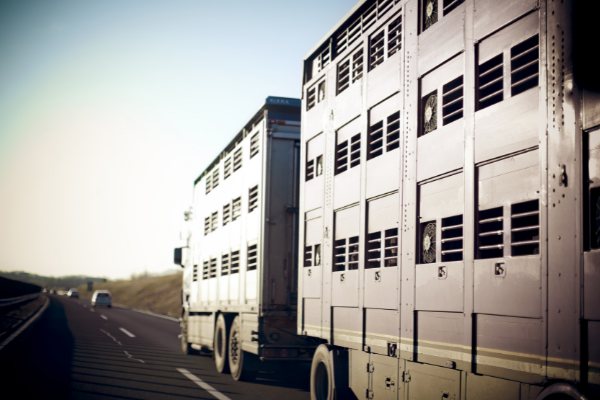BY:
SHARE:

The latest Animal and Plant Health Agency (APHA) newsletter release has been published. It gives the latest operational updates on border controls for importing live animals, germinal products, products of animal origin and animal by-products into Great Britain.
There is a lot to keep up with, and signing up for the newsletter on the APHA website is always recommended if your goods are subject to SPS controls. A link to the APHA newsletter registration page, with other useful contact information, is at the bottom of this article.
BTMS system implementation, replacing ALVS: Scheduled downtime on 12 June 2025
BTMS is being phased in, replacing the ALVS system.
Connectivity from CDS to the new BTMS will go live as follows:
Thursday, 12 June 2025, with scheduled downtime between 3 pm and 5 pm.
HMRC advises that traders may experience delays around this time. CDS and IPAFFS declarations will be queued during downtime and released once the system changes have completed.
HMRC advises to clear declarations in good time before the downtime begins, where possible.
Further advice is for consignments to avoid arriving at border control points during the 3 p.m. to 5 p.m. downtime, as processing will not be completed during the system outage.
The NCH cannot assist with clearances at this time. Declarations should automatically clear once system connectivity resumes.
Planned downtime for Customs Declaration Service – 14th-15th June 2025
The update to CDS version 4.8.0 is scheduled for release at 10.30 pm on Saturday, June 14th. It should be completed by 6.00 am on Sunday, June 15th.
HMRC advise the following:
- CDS will be unavailable during this period.
- Declarations submitted during this time will be processed when the service becomes available.
- Creating, updating, or embarking a goods movement reference (GMR) during the downtime may be affected.
- Goods with pre-lodged declarations attached to a GMR will be allowed to move using the Goods Vehicle Movement Service (GVMS).
For guidance on GVMS, information on service availability is available at the following link:
Goods Vehicle Movement Service — service availability and issues.
Also, Traders are advised to note the following:
- For import movements using GVMS, the declaration status should be checked and be manually arrived if this is needed: Details on manual arrival of goods movements can be found at the link below:
Manually arrive your goods in the UK - GOV.UK.
- If consignments contain controlled goods with pre-lodged declarations, business continuity methods may be employed: The link below gives HMRC instructions on business continuity methods implemented during systems outages.
List of goods imported into Great Britain that are controlled - GOV.UK
- Controlled goods with pre-lodged declarations should attend port inspection facilities or inland border facilities for goods to be inspected and released.
- Traders are also advised that exports should have Permission to Progress (P2P) before commencing the goods movement.
Easement on medium-risk fruit and vegetables extended until 2027
The easement on medium-risk fruit and vegetables, due to be completed on 1st July, has been extended until 31st January 2027. This is a result of the SPS agreement between the UK and the EU, which was agreed in May.
As a reminder, this easement was implemented in 2024 and means that medium-risk fruit and vegetables are exempt temporarily from SPS controls for goods from the following countries:
- EU Member States
- Switzerland
- Liechtenstein
Lifting of Restrictions on Bulgaria for Classical Swine Fever disease:
The UK has recognised Bulgaria’s disease-free status for Classical Swine Fever (CSF). It has confirmed the lifting of restrictions on imports from Bulgaria as of 30th May 2025 for the following goods:
- fresh porcine meat
- porcine meat products
Further detailed information can be found at the link below:
EU and EFTA countries approved to export animals and animal products to Great Britain
Note: Import restrictions relating to Bulgaria’s African swine fever status remain in place.
UK-EU Sanitary and Phytosanitary Agreement
At the UK-EU summit on 19 May, the UK and EU announced that an agreement relating to Sanitary and Phytosanitary (SPS) goods was under discussion. Details have yet to be released, and no anticipated release date has been set.
Although the agreement is expected to ease SPS protocols on methods of UK-EU cross-border trade in agrifood, HMRC reminds traders of the compliance requirements that remain in place for SPS goods moving between the UK and the EU.
Important note: Customs and Rules of Origin requirements will not be included in the negotiations and are not expected to change from their present state.
A link to the key document for the UK-EU summit can be found below:
UK/EU Summit - Key documentation - GOV.UK
Foot and Mouth Disease - Avoid processing delays at the border for FMD susceptible goods from Hungary, Slovakia, and Austria
Enhanced controls remain in place for Foot and Mouth disease-susceptible goods from Hungary, Slovakia, and Austria, which can cause delays at the border.
HMRC have requested that the following information be flowed down to declaring agents to help avoid unnecessary delays and checks at the UK border:
Multiple CHEDs under the same MRN.
A container or load may be held if a consignment within it could be subject to an SPS inspection. If an inspection is required, the whole load will be held.
Action to take: Preparation before crossing the border
- Check the consignment status of mixed loads via IPAFFS and CDS
- Where necessary, discuss options to minimise delays with the Port Health Authority/Local Authority (PHA/LA) at the point of entry into GB
- Options may include devanning and separating out consignments that may be subject to inspection
- Any action of this kind will likely require resubmitting the Customs Declaration for the load.
- Good communication between the declarant and those involved in the physical movement of the goods will be important to reduce the risk of goods being delayed at the port of entry.
Removal of consignments for inspections and amending a pre-lodged declaration
If a CHED is cancelled in IPAFFS due to a consignment being removed from a load, the pre-lodged declaration must be amended to remove both the cancelled CHED reference and the relating commodity codes from the pre-lodged declaration. This will also apply if the request to remove the CHED reference has been made with the PHA.
Action to take:
Double-check that the pre-lodged declaration is accurate regarding any changes made to the load. CDS will attempt to access the inspection decision for a CHED. If a CHED is cancelled and the declaration is not amended to suit, the load will be held until the declaration is accurate.
The NCH can help in exceptional cases where the CDS declaration cannot be amended. HMRC advise that this assistance is for exceptional cases and will not release holds for any other reason
3. If a consignment remains under an SPS hold in CDS: Common errors and action to take
If the pre-lodged declaration has been checked, invalid CHEDs removed, the most common errors for the persistence of the ‘hold’ instruction are:
- A CHED reference number has been incorrectly entered into CDS
- Commodity codes are not aligning between the CHED, IPAFFS and the pre-lodged declaration. Submitted data must be consistent.
- non-English characters/text copied and pasted into CHED fields on IPAFFS. Plain text is essential.
- The final destination is not a recognised GB address, or the country code is not given as GB.
The first point of contact for any of these actions should be the Port Health Authority at the point of entry into GB.
Register for the APHA Newsletter at the following link:
Useful contacts and information sources
Imports of animal products:
Urgent questions regarding the import of animal products, including germinal products, should be addressed to the Port Health Authority or Local Authority at the Border Control Post (BCP) for the goods’ point of entry.
BCP and the PHA/LA contact information can be found at the link below:
Animals, animal products and HRFNAO imports: authorised border control posts in the UK - GOV.UK
Imports of live animals:
Urgent questions regarding the imports of live animals should be addressed to APHA at the following link:
Imports of plants and plant products: Urgent questions regarding imports into England and Wales should be made by email in the first instance to APHA at the following email address:
APHA can be contacted by telephone on the following number: +44 (0) 3000 200 301
Technical help with IPAFFS:
Call the APHA helpline on 0330 041 6999 or email at the following address: APHAServiceDesk@apha.gov.uk
Note: this service is not a 24-hour service.
Further sources of information
Foot and Mouth disease - Foot and mouth disease: latest situation - GOV.UK
Importing from the EU:
Imports, exports and EU trade of animals and animal products: topical issues - GOV.UK
Products of animal origin for human consumption:
Import animal products for human consumption from the EU to Great Britain - GOV.UK
Live animals and germinal products: https://www.gov.uk/guidance/import-live-animals-and-germinal-products-from-the-eu-to-great-britain
High Risk Food and Feed Not of Animal Origin:
Plants and plant products:
- Import plants and plant products from the EU to Great Britain - GOV.UK
- Trade - UK Plant Health Information Portal
Importing from non-EU countries:
Live animals, animal products and High-Risk Food and Feed Not of Animal Origin:
Plants and plant products:
- Import plants and plant products from non-EU countries to Great Britain - GOV.UK
- https://planthealthportal.defra.gov.uk/trade/
OneCall™ Email assistance as and when required; A one-call solution for all your import, export and customs enquiries. Export help. Import help. Customs help.
Stay informed about customs and international trade matters by subscribing to our OneCall™ service. This comprehensive offering includes a dedicated email helpline for support, timely practical updates direct to your inbox (Did You Know?), monthly UK Customs & Trade Briefings and access to an interactive members' area with an exclusive community for our subscribers.
International Trade Updates & Spotlight Newsletter
Subscribe to our free information emails covering international trade topics...
MORE INDUSTRY INSIGHTS...












